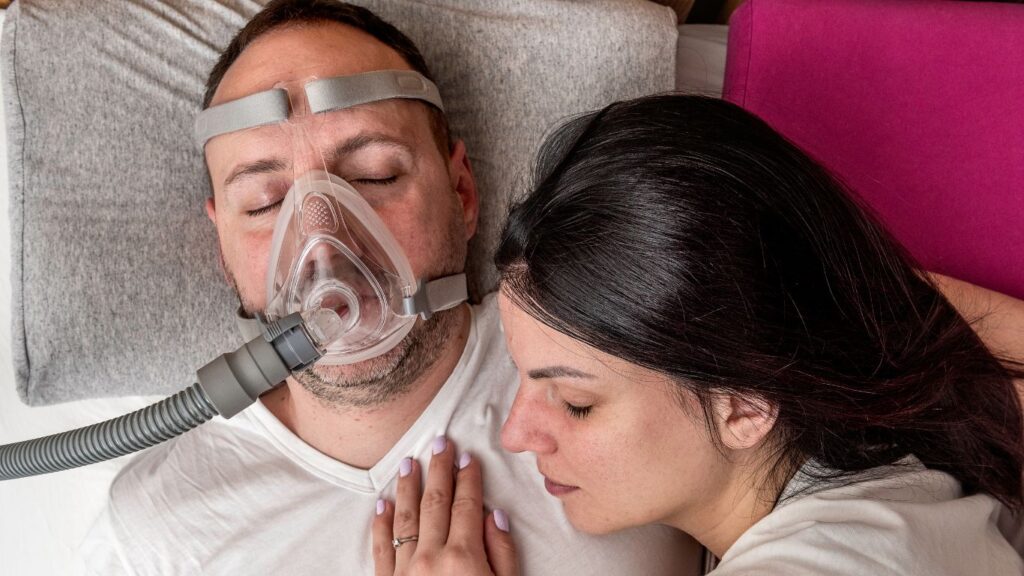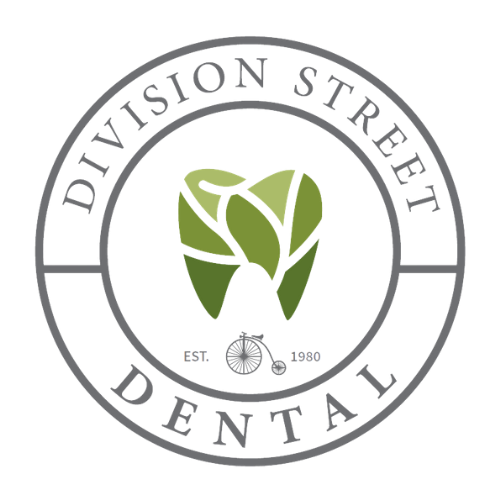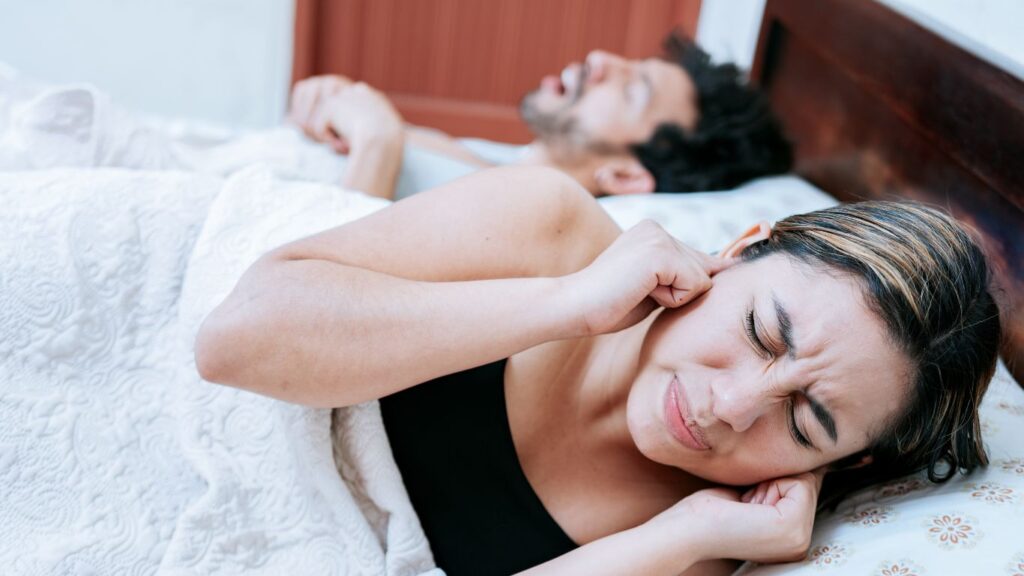Breathe & Sleep Better Tonight
Sleep apnea and sleep-disordered breathing encompass a range of conditions that interrupt normal breathing patterns during sleep. These disruptions can lead to numerous health concerns, including high blood pressure, heart disease, stroke, and depression. With millions affected worldwide, understanding and addressing these issues becomes paramount for overall well-being.
If you or someone close to you show signs of sleep apnea or other sleep-disordered breathing problems, it’s crucial to consult a professional. This article will delve into the specifics of sleep apnea, its types, causes, symptoms, and available treatment approaches, emphasizing the role of a sleep apnea dentist.
What is Sleep-Disordered Breathing?
Sleep-disordered breathing (SDB) refers to a collection of disorders characterized by abnormalities in respiratory patterns or the quantity of ventilation during sleep. These disturbances can lead to fragmented sleep and a drop in blood oxygen levels.
While many might be familiar with the term due to the prevalence of certain specific disorders, it’s essential to understand that SDB represents a broad spectrum of breathing-related sleep issues. The manifestations and severity of these disorders can vary widely among individuals, impacting their sleep quality and, consequently, their overall health and daily functioning.
Types of Sleep-Disordered Breathing
Before diving into the intricacies of sleep apnea, it’s crucial to familiarize oneself with the broader spectrum of sleep-disordered breathing conditions and how they differ. Here are the primary types to be aware of:
Obstructive Sleep Apnea (OSA)
The most common type, OSA happens when the muscles in the back of your throat fail to keep the airway open, despite the effort to breathe. This obstruction leads to pauses in breathing while sleeping.
Central Sleep Apnea
Unlike OSA, central sleep apnea isn’t caused by a blockage of the airway. Instead, the brain fails to signal the muscles to breathe due to instability in the respiratory control center, leading to irregular breathing patterns or complete stops in breathing.
Complex Sleep Apnea Syndrome
Also known as treatment-emergent central sleep apnea, this is a combination of both obstructive and central sleep apnea. It can emerge when someone with OSA begins treatment and then manifests symptoms of central sleep apnea as well.
Sleep Apnea Causes
There are several factors that can increase a person’s risk of developing sleep apnea, including:
Obesity
Carrying excess weight, especially around the neck, can lead to increased pressure on the airway. This additional weight can cause the airway to narrow or collapse more easily, leading to disruptions in breathing during sleep.
Smoking
Regular smoking can cause inflammation and damage to the respiratory system. The harmful chemicals in cigarettes irritate the airways, making them more susceptible to blockages and exacerbating the risk of sleep apnea.
Alcohol use
Consuming alcohol, especially before bedtime, can cause the muscles that control the airway to relax excessively. This relaxation makes it more challenging for the airway to remain open, increasing the likelihood of interruptions in breathing.
Open Mouth Breathing
Breathing through the mouth, especially during sleep, can alter the position of the jaw and tongue. This can lead to a narrower airway, making it more susceptible to obstructions and causing disruptions in the breathing pattern.
Genetics
Sleep apnea has a hereditary component. Individuals with a family history of the condition may have a higher predisposition to develop it due to inherited physical traits that affect the airway structure or muscle tone.
Sleep Apnea Symptoms
Sleep apnea can present as multiple symptoms depending on which form it takes, the most common include:
- Loud Snoring or Gasping While Sleeping
- Morning Headaches Fatigue
- Excessive Daytime Sleepiness
- Restless Tossing and Turning While Sleeping
- Weight Gain
- Irritability
- Difficulty concentrating
Please keep in mind that not everyone who snores has sleep apnea. Snoring may indicate this condition, however, if any of the following symptoms or concerns regarding your sleeping arise it’s essential that a medical provider or sleep apnea dentist be contacted in order to receive a proper diagnosis and advice.
Sleep Apnea Can Impact Health
Sleep apnea is an increasingly prevalent problem that poses significant threats to one’s well-being, including long-term consequences such as heart attack or stroke. Here are the key health risks of sleeping apnea:
- High Blood Pressure: People living with sleep apnea have an increased risk of high blood pressure, which can result in many serious health complications including cardiovascular disease and stroke.
- Heart Disease: Sleep apnea increases your risk for cardiovascular diseases such as heart attack or failure, making the situation even more serious than it already was.
- Stroke: Deficient oxygen levels during sleep may also increase your risk for stroke.
- Depression: People living with sleep apnea are at increased risk of depression symptoms such as sadness, hopelessness and irritability.
- Reduced Quality of Life: Sleep apnea can significantly diminish quality of life and impact daily activities and relationships, such as fatigue and daytime drowsiness that makes concentrating and finishing tasks challenging. It may also impair driving ability in those affected by it.
As soon as one suspects having sleep apnea, seeking treatment from either a dentist or doctor should become essential in maintaining overall good health and quality of life. Receiving proper treatments will decrease the risks tof health complications while increasing quality of life and potentially saving lives.
Diagnostic and Treatment Options of Sleep Apnea
Sleep apnea can have serious repercussions if left untreated, so seeking medical assistance as soon as you suspect someone in your life or that of someone close is vitally important if this diagnosis and treatment arise. A sleep study and physical exam should both be used during diagnosis.
Here is a breakdown of all of the steps involved in diagnosing and treating sleep apnea:
- Sleep Studies: To conduct a sleep study, spend one night at an accredited sleep center where breathing, heart rate, and brain activity will all be closely monitored in order to ascertain whether there may be an apnea disorder present. At Division Street Dental, we offer the WatchPAT single-use sleep study. The results are sent to one of our online Sleep Medicine Physicians to diagnose whether you have sleep apnea or sleep-disordered breathing. Ask us about it at your next visit.
- Physical Examination: Undergoing a physical exam is one of the best ways to identify any physical abnormalities that might contribute to sleep apnea, such as open mouth breathing, skeletal positioning if your hard palate or enlarged tonsils.
There are multiple treatment options for sleep apnea available today, such as:
- Myofunctional Therapy: This unique therapy involves physical therapy of your oral mouth. By training your tongue positioning, and musculature of your mouth, myofunctional therapy has been proven to decrease OSA by 50%.
- Continuous Positive Airway Pressure (CPAP) Therapy: Wearing a mask over the nose or mouth during sleep to deliver air pressure through air pumps keeps airways open during restful sleep, providing continuous positive airway pressure (CPAP).
- Oral Appliance Therapy (OAT): OAT involves wearing a custom-designed oral device in your mouth in order to keep your airways open, tongue positioned forward and up and will help you breathe easily.
- Surgery: It may be required in some instances to address excess soft tissues that have formed within the upper airway and are blocking its passageway.
- Laser treatment: NightLase is a common procedure performed by our LightWalker Fotona laser to help stimulate neocollagenesis to the surrounding soft tissues that block your airway. With laser dental care, we can help open up and expand your airway by tightening up the collagen fibers in the soft palate, the base of the tongue, and the floor of your mouth.
Work closely with a doctor or sleep apnea dentist in order to establish the most suitable treatment option for yourself. Proper management of sleep apnea will increase quality of life while decreasing risks associated with health complications.
How a Dentist Specialized in Sleep Apnea Improves Your Sleep Quality
Are you in search of non-invasive treatments for sleep apnea? Turn to a dentist skilled in sleep apnea management. These specialists possess advanced knowledge and tools to effectively diagnose and treat sleep apnea, ensuring you achieve deeper, uninterrupted sleep while minimizing health risks. By leveraging cutting-edge treatments, sleep apnea dentists are dedicated to enhancing both your sleep and overall well-being.
Here’s a breakdown of popular treatments offered by sleep apnea dentists:
Oral Appliance Therapy
This approach employs a tailor-made device, similar to a mouthguard, worn during sleep. It repositions the lower jaw and tongue to prevent throat tissues from collapsing, ensuring a clear and unobstructed airway.
Myofunctional Therapy
A holistic approach, Myofunctional Therapy focuses on exercises and techniques that target the tongue, mouth, and facial muscles. By strengthening and retraining these muscles, it helps to correct oral and facial imbalances, ensuring the tongue occupies the right position. This therapy has proven beneficial in addressing the root causes of sleep apnea, improving breathing patterns, and enhancing overall oral health.
NightLase® with Fotona LightWalker Laser
NightLase® is a cutting-edge, non-invasive laser treatment designed to treat sleep apnea and snoring. Utilizing the Fotona LightWalker laser, it works by tightening the collagen within the oral mucosa tissue. This results in a firmer, more open airway, reducing the severity of sleep apnea and the frequency of snoring episodes. With its minimally invasive nature, Night Lase offers a comfortable and efficient alternative to traditional sleep apnea treatments.
Continuous Positive Airway Pressure (CPAP) Therapy
This non-invasive solution involves a mask, fitting over the nose and mouth, used overnight. It ensures constant air pressure, keeping the airways open, thus paving the way for healthier breathing patterns and sound sleep.

Benefits of Visiting a Sleep Apnea Dentist
Sleep apnea dentists have extensive training to accurately identify and treat sleep apnea, providing highly effective solutions. From lifestyle changes to an oral appliance, or combinations thereof – sleep apnea dentists offer effective solutions.
Visit a sleep apnea dentist can offer many advantages, including:
- Oral Appliance Therapy Is Non-Invasive Therapy: Oral appliance therapy provides a noninvasive alternative for sleep apnea that’s much less intrusive than its more intrusive alternatives like CPAP Therapy. While wearing an uncomfortable facemask during sleep with CPAP requires wearing one at home too often compared with oral appliance therapy is less intrusive and more comfortable to use than its competitors like CPAP therapy.
- Improved Sleep: By treating sleep apnea, you can both improve the quality and reduce risks related to health complications. A sleep apnea dentist can provide assistance so you get all of the rest you need to feel your best!
- Improved Quality of Life: Sleep apnea can have an adverse impact on both relationships and daily activities, diminishing quality of life significantly. By treating sleep apnea effectively you can improve the quality of your life while decreasing risk factors related to its complications.
- Professional support: Sleep apnea dentists are professionals trained to diagnose and treat sleep apnea, providing you with expert care that ensures optimal results. They’re equipped to give the support and attention required for positive change to occur quickly.
Division Street Dental can assist Portland area patients who suffer from sleep apnea. We pride ourselves on delivering unparalleled patient care at Division Street Dental and are dedicated to offering top-quality service for each of our patients.
FAQ: Portland Sleep Apnea Treatments
Navigating the complexities of sleep apnea can be challenging, but we’re here to help clarify your concerns. Below are some frequently asked questions and our expert answers on sleep apnea treatments available at Division Street Dental.
What is sleep apnea, and why is it a concern?
Answer: Sleep apnea is a sleep disorder where breathing repeatedly stops and starts during sleep. It can lead to serious health issues like high blood pressure, heart disease, and depression. It’s essential to diagnose and treat it early to ensure overall well-being.
How do I know if I have sleep apnea?
Answer: Common symptoms include loud snoring, gasping for air during sleep, fatigue, and difficulty concentrating during the day. However, not everyone who snores has sleep apnea. If you experience these signs, consult a sleep specialist or sleep apnea dentist like Division Street Dental.
What treatments does Division Street Dental offer for sleep apnea?
Answer: We provide a variety of treatments including Oral Appliance Therapy, Myofunctional Therapy, NightLase® with Fotona LightWalker Laser, and guidance on CPAP Therapy. We tailor our approach based on individual needs to ensure effective results.
Why choose a dentist for sleep apnea treatment?
Answer: Sleep apnea dentists possess specialized knowledge and tools, offering non-invasive treatments to ensure uninterrupted sleep. At Division Street Dental, we leverage cutting-edge treatments to enhance your sleep quality and overall well-being.
How can I get started with my sleep apnea treatment in Portland?
Answer: Reach out to Division Street Dental! We’re dedicated to providing top-quality care to all our Portland patients. Call us at 503-774-3033 or visit us at 7600 SE Division Street to begin your journey to better sleep.
Reach Out To Our Sleep Apnea Dentist Now
Are you suffering from sleep apnea in Portland? Don’t wait. Our mission is to offer our patients top-quality healthcare at every turn! We look forward to being of assistance today.
Do not allow sleep apnea to ruin the quality of your life any further – call us now at 503-774-3033, or come visit us in Portland at 7600 SE Division Street.


